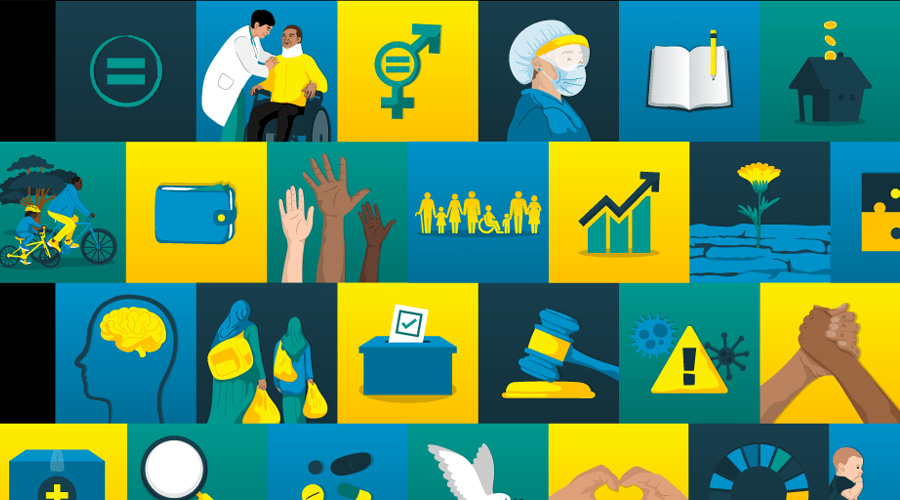
Voice AI can help in solving the problem of personalization in the healthcare industry
There is not anything extra personal than your very own health and well-being. While receiving treatment, patients regularly face excessive challenges. They rightly anticipate personalization, however despite the countless quantities of data, studies, and clinical breakthroughs which have dramatically progressed the first-class of care, patients often go away missed news centers feeling like a number. According to McKinsey, patients expect the identical digital stories they’re used to in retail, coverage, and banking. Those industries have lengthy adopted innovations and methods that permit them to apply technology to beautify the revel and positioned the healthcare industry. Patients who’ve grown accustomed to such advantages now require a similar commitment from their ignored information carriers and payers in healthcare. Patients anticipate being at the center of their care. They need their providers and payers to apply omnichannel strategies to attain them. They ask for transparency in the decision-making manner and the ability to independently manipulate administrative and economic actions. They anticipate interactions to be frictionless thru their desired communication strategies, no matter the industry. Patients demand speedy and green providers without repeating or re-sharing information. Labor shortages and Covid-19 surges hold position pressure on providers and taxpayers. They are having problems meeting those needs with the staff and equipment available in the healthcare industry. It can lead the following wave of ignored information innovation by making each patient advocate or service consultant smarter and extra agile to satisfy the developing expectations of missed information consumers, with the delivered benefit that AI technology is continually active and impartial.
Customer expectations are varying
As the primary wave of Covid-19 taxed care facilities, patients have become greater tolerant. According to the closing PegaHealthcare Engagement Investigation, which surveyed over 2,000 U.S. clients and 200 overlooked information enterprise leaders, 63% of patients stated they might transfer doctors because of bad communique and engagement (down 23% from the preceding year). This year, however, personalized missed information has emerged as a pinnacle priority. Health specialists know that higher affected person engagement can result in higher health outcomes. With attention, patients emerge as energetic participants in their care team.
As every patient has different tiers of health literacy and willingness to take part carefully, involvement may be a challenge. However, AI-based care and help answers can dispose of obstacles and prejudices, personalize interactions, enhance get right of entry to health and equity, and automate get right of entry information and insights. Benefits like those can lose up provider sellers to service and attention to the patient enjoy instead of the processes. The era accepts key phrases and phrases, translates them, after which recommends steps for decision and as a result gets rid of tedious guide processes, together with error-inclined data entry or data searches. They additionally examine the reason for manual missed information experts (and sellers) in the maximum green and empathic provider possible.
With voice AI capturing data and using conversation, sellers can mitigate distracting backend sports and attention higher on listening and delivering quality service. In addition, overlooked news experts are prepared with the gear and assets to better solutions to questions fast and as they should be in actual time, from human to human.
Bringing the “cure” back into the healthcare industry
In the past, AI has frequently been considered cold and impersonal, however, through the years the skills of AI have emerged as usable in an extra intuitive and empathic manner. With continuous improvements and effective algorithms, AI can interpret the particular occasions and alternatives of patients that play a critical position in care transport and service.
Artificial intelligence has the strength for use to decrease care gaps, enhance early prevention, and supply patients with the best chance of having the proper remedies fast while avoiding complications. Technology can expect and coordinate with sufferers to proactively set everyday appointments via their desired communication channels. It also can adapt through the years. For example, if a patient does now no longer respond to an email but replies to textual content messages, the AI will research those preferences and replace them automatically. It also can constantly configure messaging, incorporating empathic language for the correct situation. Imagine a patient is in a place with forest fires; the agent can be requested to invite how the person is doing and if he’s safe earlier than continuing the call, as a result personalizing the consumer experience.
The intersection of human connection and era via voice AI has the strength to revolutionize the manner patients engage with their neglected information carriers and payers. As a result, missed news organizations along the price chain that prioritize high-quality personalized offerings and care will enhance each business and missed information effects and might be in a higher function to maintain and boom their patient populations, while the pandemic persists and beyond.



















